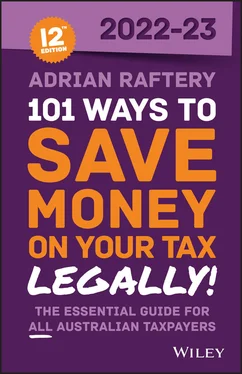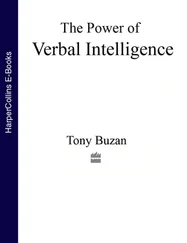encourage lodgement of outstanding tax returns
recoup child-support debt from tax returns.
Some may say that binding financial agreements defeat the purpose of marrying based on the values of love and trust, but seeking legal advice on setting up a binding financial agreement could be a good preventative measure against a bag egg. Love hurts, but divorce can be expensive. Make sure you consult a lawyer before drafting up any such agreement.
 TIP
TIP
While it is tempting not to lodge income tax returns for a number of years to avoid any increase of child support payments, you could be missing out on a number of other benefits (including substantial tax refunds and government concessions) or simply accruing extra late lodgement penalties with the ATO.
Three things in life are certain — taxes, death … and taxes on death! Unlike other countries, there is no gift or inheritance tax in Australia. But don't be fooled because certain transactions that occur as a consequence of a person's death are taxed.
Executors of deceased estates are required to finalise the tax affairs of the deceased person, including any outstanding tax returns.
The final personal tax return of the deceased person with their personal TFN is known as the ‘date of death return’ and covers the period from the previous 1 July to the date of death. It should include all assessable income derived by the deceased person and all the tax-deductible expenses incurred up to the date of death.
The general individual tax rates, with the full tax-free threshold, apply to the final tax return as well as the Medicare levy and Medicare levy surcharge. Any compulsory Higher Education Loan Program (HELP) or Student Financial Supplement Scheme (SFSS) repayments are also included, but the remaining accumulated HELP debt is cancelled.
 TIP
TIP
Ordinary losses as well as capital losses will lapse at the time of death and cannot be carried forward into the deceased estate. If possible, try to use these capital losses prior to death by selling any assets that have appreciated in value.
Income derived after the date of death, and any deductible expenses incurred after the date of death, are included in the deceased estate's trust return. Tax returns will need to be lodged in future years until the estate is fully administered and no longer deriving income.
For the first three tax returns, deceased estate income — to which no beneficiary is presently entitled — is taxed at the general individual rates, with the benefit of the full tax-free threshold. No Medicare levy is payable. In the fourth and subsequent years, the concessional period is not extended and special progressive trust tax rates will then apply, as set out in table 1.6.
TABLE 1.6: deceased estate tax rates (2022–23)
Source: © Australian Taxation Office for the Commonwealth of Australia.
| Deceased estate taxable income (no present entitlement) |
Tax rates |
| $0–$416 |
Nil |
| $417–$670 |
50% of the excess over $416 |
| $671–$45 000 |
$127.30 + 19% of the excess over $670 |
| $45 001–$120 000 |
$8550 + 32.5% of the excess over $45 000 |
| $120 001–$180 000 |
$32 925 + 37% of the excess over $120 000 |
| $180 001 and over |
$55 125 + 45% of the excess over $180 000 |
 TAX FACT
TAX FACT
A new tax file number is required to lodge a deceased estate's tax return.
A beneficiary is a person who receives all or part of the deceased estate. There may be some tax obligations for beneficiaries, depending on the nature of any distribution they may receive. If the trust distribution consists of:
Corpus. There is no tax payable.
Income. Tax is payable at the beneficiary's marginal tax rate.
Assets. There may be capital gains tax on subsequent disposal; see p. 112 and p. 134.
 PITFALL
PITFALL
Funeral expenses are not tax-deductible, nor are they eligible for the medical expenses tax offset.
Trusts are an excellent vehicle for managing and preserving your family's wealth. They provide a great deal of flexibility in sharing the tax burden as income and capital can be distributed among beneficiaries in the most tax-effective manner. Beneficiaries generally have no legal entitlement or interest in the trust's assets until the date stated in the trust deed (for example, Billy is only entitled to the assets upon reaching age 30).
 TIP
TIP
If you are worried about certain family members ‘blowing’ all of the assets that you worked hard accumulating over the years, the creation of a trust will give you a bit more peace of mind.
Trusts are ideal for those beneficiaries who are hopeless with money, suffer from drug addiction, have long-term health problems or are likely to experience a relationship breakdown in the future. Essentially, family assets can be protected from ‘creditors and predators’.
The two main types of trusts used by families are:
Discretionary trusts. These are often set up either to hold property and investments on behalf of family members or to operate a business.
Testamentary trusts. These are created via a clause in the ‘testament’ (or will) of an individual, but don't get established until after the individual dies.
A testamentary trust is an indirect way of managing your family's wealth after your death. While you obviously won't be around to oversee the management of the trust itself, you will have some comfort knowing that your loved ones will be looked after financially and not savaged by the ATO.
 TAX FACT
TAX FACT
There are substantial tax advantages relating to testamentary trusts, including distributions to minors being taxed at the more favourable adult rates.
 PITFALL
PITFALL
The cost of establishing and maintaining a trust can be high and may outweigh any benefits in having a trust structure, especially when the assets involved are not worth much.
The trustee is the legal owner of the trust property, and is responsible for managing the trust fund on behalf of the beneficiaries. The trustee has a legal duty to obey the terms of the trust deed and to always act in the best interests of the beneficiaries. A trust can operate for up to 80 years in Australia, though it is common to have a clause within the trust deed to allow the trustee the option of winding it up earlier if considered appropriate. Distributions must be documented by 30 June each year.
 PITFALL
PITFALL
Читать дальше

 TIP
TIP TAX FACT
TAX FACT PITFALL
PITFALL










